Nearly a century ago, when the US increased tariffs on most imported goods, the consequences were dire. Specifically: Global trade plummeted, the US was retaliated by other countries and made the Great Recession (2009) worse.
However, the above tariffs - applied under the US Tariff Act of 1930 - are nothing compared to the tariffs that Mr. Donald Trump has pledged to apply if he wins a second term in the White House.
During his previous term, Mr. Trump was known as "tariff man."
The former US president wants to impose a 10-20% tariff on all goods imported into the country when he returns to the White House this year. This would be a sharp increase from the current average of 2%.
For imports from China, Mr. Trump has proposed an even higher tariff of 60%.
“For me, the most beautiful word in the dictionary is ‘tariff,’ that’s my favorite word,” he said in a recent interview with Bloomberg .
Many economists have warned that the new tariffs would damage global economic growth and push up inflation in the world's largest economy.
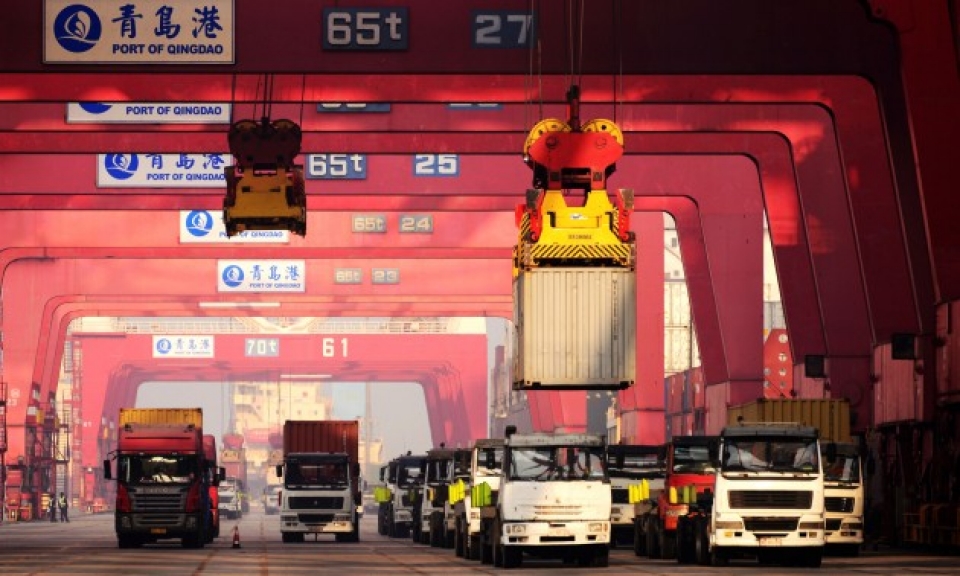 |
| Most forecasters have negative predictions if Mr. Trump returns to the White House and imposes new tariffs. (Source: Asia Times) |
No one escapes loss
Researchers from the Washington-based Peterson Institute for International Economics wrote in a recent note that imposing higher tariffs would upset US allies and partners, spark a global trade war, harm global economic welfare, and undermine national security.
Most forecasters are predicting a negative outcome if Mr Trump returns to the White House and imposes new tariffs.
For example, analysts at UBS estimate that a 60% tariff on imports from China and a 10% tariff on goods from the rest of the world would reduce global economic growth by one percentage point by 2026.
According to UBS, corporate profits will fall by 6% on average and global stock indexes will also fall, with sharp declines in European, Chinese and other emerging market stocks. The European economy will also take a heavy hit.
ABN AMRO Bank forecasts that if the world's largest economy raises tariffs to 10% on all goods, the damage to the Eurozone's Gross Domestic Product (GDP) will be similar to the damage from the energy crisis caused by Russia's special military campaign in Ukraine.
The International Monetary Fund (IMF) also sees an impact on global output from the potential for higher tariffs around the world.
In a “severe scenario” of widespread tariff increases and trade restrictions, global output could fall 7% over the long term, according to an IMF analysis published last year.
“That would be equivalent to a decline of nearly the combined annual GDP of Germany and Japan,” the IMF said.
“Assuming that Trump gets his proposed tariffs implemented, no one will escape unscathed,” said Maurice Obstfeld, a senior fellow at the Peterson Institute.
The spiral of US-initiated trade measures
Recently, speaking in Chicago, Mr. Trump reaffirmed his tough stance with allies (including Japan, France and South Korea) through tariffs, or simply threatening to impose tariffs.
CNN commented that if he returns to the White House, the above approach to trade relations will further weaken the principles of open trade and competition - the things that have promoted global economic growth for decades.
Meanwhile, Mr. Maurice Obstfeld said that Mr. Trump's approach would make the global trade system a mess of bilateral agreements.
"How that system will work is anyone's guess. But it is certain that the benefits from trade will decrease and trade relations between countries will become more fragmented," said Maurice Obstfeld.
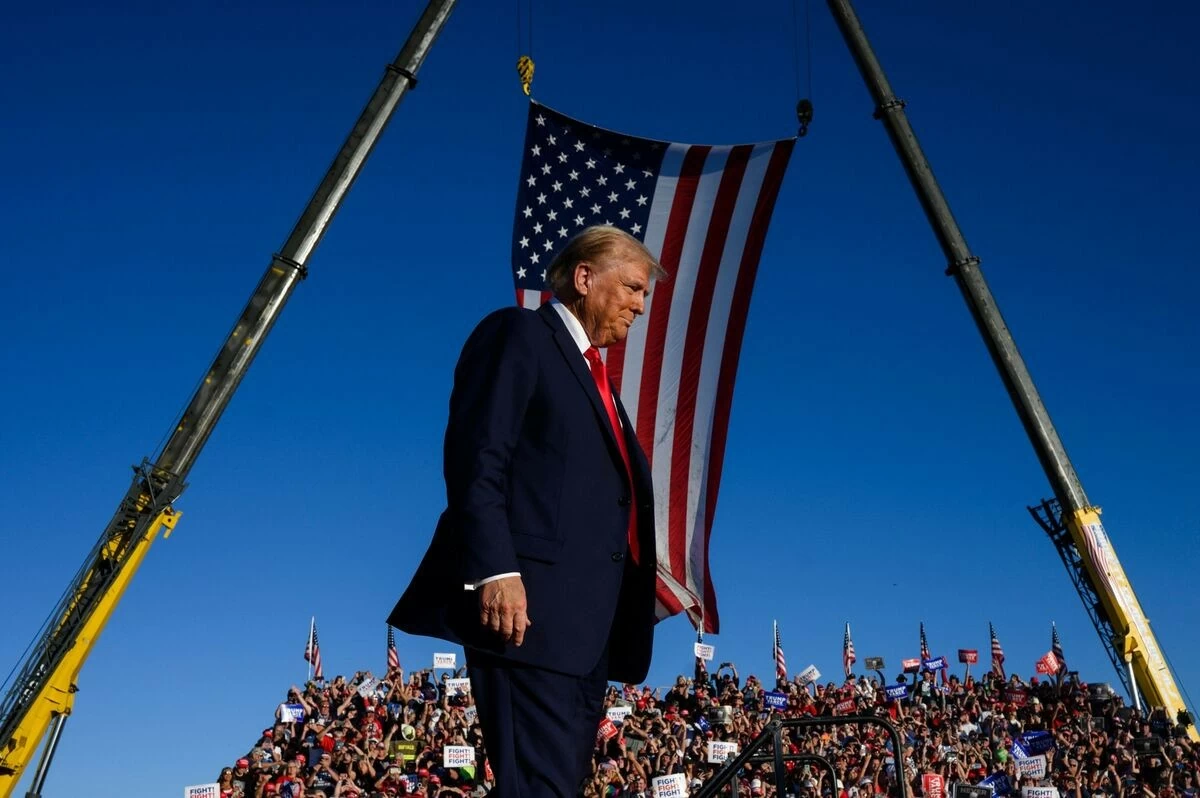 |
| Former US President Trump wants to impose a 10-20% tax on all goods imported into the country when he returns to the White House. (Source: Bloomberg) |
Meanwhile, Professor Petros Mavroidis at Columbia Law School (USA) sees an even bleaker outcome.
"I think it's unrealistic," he said. "The world has to be connected both economically and non-economically. If you're not connected, you're going to pay a price. Other countries can impose retaliatory tariffs on imports from the US, impose tariffs on imports from elsewhere to protect their markets."
In 2018, when Mr. Trump announced tariffs on steel and aluminum imported into the United States, the European Union (EU) immediately imposed its own tariffs on certain steel products, citing higher import risks. The bloc also responded directly to Washington with tariffs on more than $3 billion worth of American goods, including motorcycles, denim, and whiskey.
"Countries could fall into a spiral of trade measures, initiated by the US," said Andre Sapir, a senior fellow at Bruegel, a Brussels-based think tank.
Will there be no mercy?
Besides tariffs, economists also resented former President Trump's desire to exert more control over the US Federal Reserve (Fed).
During the election campaign, Mr. Trump repeatedly asserted: "Recently, Fed Chairman Jerome Powell has maintained interest rates too high."
However, economists note that any attempt to undermine the Fed's independence would shake global financial markets and destabilize the US dollar - the world's leading currency used for trade payments and foreign exchange reserves.
However, Mr. Edward Alden, a senior fellow at the Washington-based Council on Foreign Relations, said that Mr. Trump is unlikely to interfere with the Fed's independence because this move could pose risks to the world's largest economy.
He predicted that if the "tariff man" returns to the White House this year, his actions will certainly be more uncompromising than in his first term!
Source: https://baoquocte.vn/bau-cu-my-2024-se-the-nao-neu-ong-trump-tro-lai-nha-trang-va-ap-thue-khung-kinh-te-the-gioi-chiu-don-291683.html




![[Photo] Prime Minister Pham Minh Chinh chairs the 16th meeting of the National Steering Committee on combating illegal fishing.](https://vphoto.vietnam.vn/thumb/1200x675/vietnam/resource/IMAGE/2025/10/07/1759848378556_dsc-9253-jpg.webp)











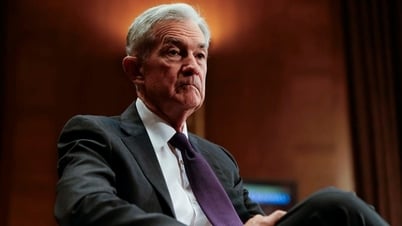




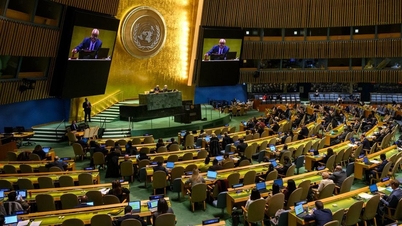


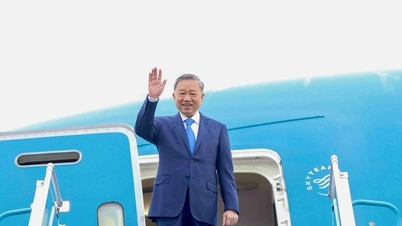











![[Photo] Super harvest moon shines brightly on Mid-Autumn Festival night around the world](https://vphoto.vietnam.vn/thumb/1200x675/vietnam/resource/IMAGE/2025/10/07/1759816565798_1759814567021-jpg.webp)





































































Comment (0)